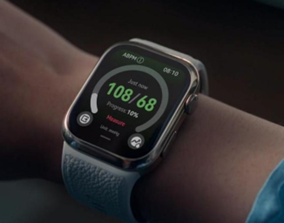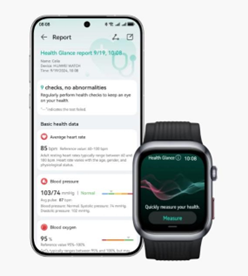Blood
pressure is a critical indicator of overall heart health and general
well-being. Monitoring blood pressure regularly is essential because it helps
detect potential health risks such as hypertension (high blood pressure) or
hypotension (low blood pressure) before they become serious problems. Without
proper monitoring, individuals might not realize they have abnormal blood
pressure, which can lead to severe complications like heart disease or stroke.
Regular check-ups ensure that issues are detected early and can be managed
effectively. In this article, we will explore the benefits of regular blood
pressure check-ups, including how they contribute to early detection, prevent
serious health issues, enable better management of health, and encourage a healthier
lifestyle.

Early Detection of Hypertension
Hypertension,
or high blood pressure, is often called the "silent killer" because
it typically has no visible symptoms. The risks associated with undiagnosed
hypertension are severe, ranging from heart disease to kidney failure. Regular
blood pressure check-ups play a crucial role in identifying high blood pressure
early, allowing for timely intervention and treatment. In many cases, early
detection can prevent the onset of more serious conditions, as managing high
blood pressure through medication and lifestyle changes can greatly reduce
these risks.
Identifying High Blood Pressure Early
One
of the key benefits of regular blood pressure check-ups is the ability to
identify high blood pressure early. This is particularly important because
hypertension often develops gradually and does not present noticeable symptoms.
Regular monitoring, either through doctor visits or at-home devices like the
Huawei Watch D2, can provide valuable insights into your blood pressure levels.
With consistent tracking, individuals can identify trends, making it easier to
spot potential issues and seek medical advice before the condition worsens.
Preventing Future Complications
When
high blood pressure goes unchecked, it can lead to long-term complications like
heart attacks, strokes, and kidney damage. Regular blood pressure check-ups
help prevent these outcomes by identifying problems early. Once hypertension is
detected, lifestyle changes such as reducing sodium intake, increasing physical
activity, and taking prescribed medications can all contribute to lowering
blood pressure and mitigating the risk of complications. Monitoring blood
pressure also helps to gauge the effectiveness of treatments, ensuring they are
working as expected.
Preventing Serious Health Issues
Hypertension
increases the risk of several serious health conditions, including heart
disease and stroke. The heart works harder when blood pressure is elevated,
which can cause damage to the arteries over time. If left untreated, high blood
pressure can lead to plaque buildup, heart attacks, or strokes. Regular
check-ups allow healthcare professionals to assess blood pressure and implement
strategies to prevent these complications from developing.
Reducing the Risk of Heart Disease and Stroke
One
of the most critical advantages of regular blood pressure monitoring is the
ability to reduce the risk of heart disease and stroke. High blood pressure
damages the blood vessels, making them more prone to plaque buildup, which can
lead to arterial blockages and increase the likelihood of a stroke or heart
attack. By regularly monitoring blood pressure, individuals can take proactive
steps such as adjusting their diet, managing stress, and staying active to keep
their blood pressure within a healthy range, thus lowering the risk of these
life-threatening conditions.
Protecting Kidney Function and Overall Health
The
kidneys are particularly sensitive to high blood pressure. Over time, high
blood pressure can cause damage to the blood vessels in the kidneys, leading to
kidney disease. This is why it is so important to monitor blood pressure
regularly. Keeping blood pressure within a healthy range not only reduces the
risk of heart disease and stroke but also helps protect kidney function. Early
detection and management of hypertension can prevent irreversible kidney damage
and maintain overall health, keeping the body's vital organs functioning
optimally.
Better Health Management
Regular
blood pressure check-ups enable individuals to manage their health better. By
regularly checking their blood pressure, people can make more informed
decisions about their lifestyle choices, treatments, and overall health
strategies. Healthcare providers can adjust medications, recommend dietary
changes, and suggest physical activities tailored to the individual’s needs
based on their blood pressure readings.
Adjusting Treatments Based on Results
Regular
blood pressure check-ups provide the necessary information to adjust treatments
effectively. If blood pressure readings show signs of hypertension or
hypotension, healthcare providers can modify medications, introduce new
treatments, or suggest lifestyle changes based on the latest data. This
adaptability ensures that the treatment plan remains aligned with the
individual's health needs, enhancing the effectiveness of interventions and
improving long-term health outcomes.
Personalized Health Plans for Better Outcomes
Having
access to regular blood pressure check-ups allows for the development of
personalized health plans. These plans can include dietary modifications,
exercise routines, stress management techniques, and other interventions
designed to help individuals maintain healthy blood pressure levels.
Personalization is key, as each person’s body responds differently to lifestyle
changes and treatments. Regular monitoring ensures that the health plan evolves
with the individual’s progress, resulting in better overall health outcomes.
Promoting a Healthy Lifestyle
Encouraging
a healthy lifestyle is a fundamental aspect of preventing high blood pressure
and maintaining overall heart health. Regular blood pressure check-ups serve as
a reminder to stay on top of one’s health, and they can motivate individuals to
make healthier choices. For example, regular monitoring may prompt individuals
to exercise more, reduce their salt intake, or prioritize stress reduction.
Wearable devices like the blood pressure monitoring Huawei Watch D2 play an important role in encouraging
healthy choices, especially when it comes to blood pressure how to measure.
With its advanced health tracking features, including blood pressure
measurement, it empowers users to take control of their health by monitoring
important metrics throughout the day.

Conclusion
Regular
blood pressure check-ups are essential for detecting early signs of
hypertension, preventing serious health issues, managing health effectively,
and promoting a healthier lifestyle. By monitoring blood pressure consistently,
individuals can make informed decisions about their health, reduce the risk of
heart disease, stroke, and kidney damage, and improve their overall well-being.
With advancements in wearable technology, managing blood pressure has become
more accessible and convenient, offering users real-time data and personalized
insights to support their health goals. In conclusion, maintaining regular
blood pressure check-ups is a crucial step in ensuring a long and healthy life.
